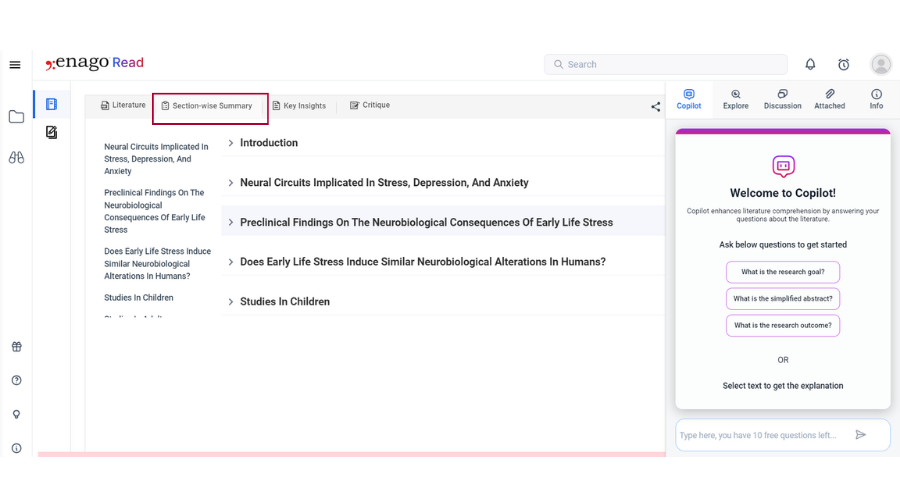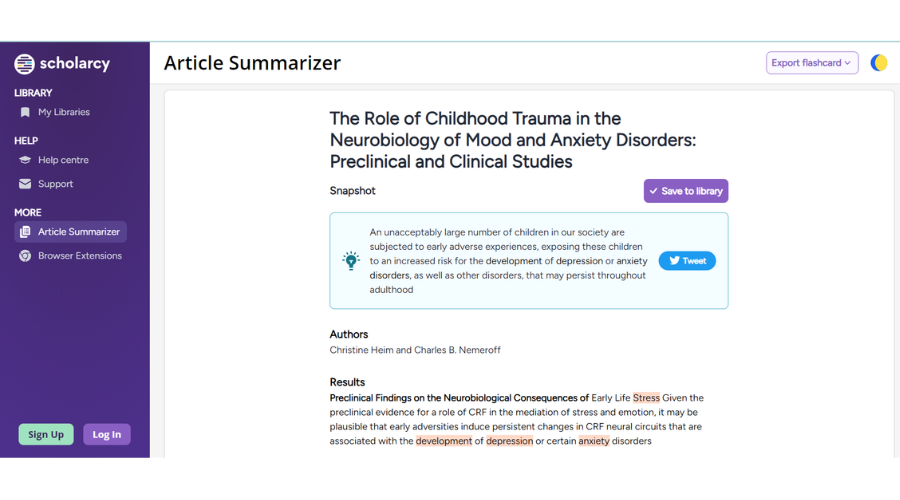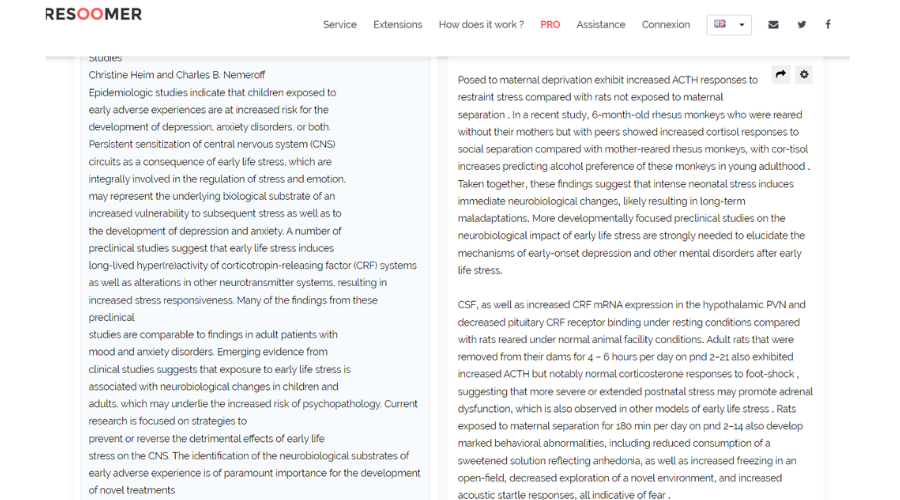Simplifying the Literature Review Journey — A comparative analysis of 5 AI summarization tools

Imagine having to skim through and read mountains of research papers and books, only to realize that most of the literature wasn’t what you were looking for! Sounds scary, doesn’t it? Why not use summarization tools to save time and help you decide if a particular reference is worth referring to or not!
With the growing development in Artificial Intelligence (AI), summarization tools have emerged as an indispensable aid for researchers in retrieving information from the vast sea of data. By harnessing the power of natural language processing (NLP) and advanced algorithms, these cutting-edge tools distill lengthy texts into concise and comprehendible summaries. Although AI summarization tools are not merely technological novelties, researchers find themselves puzzled about choosing a right tool which helps them to ease their referencing journey.
What Are AI Summarization Tools
AI summarization tools are AI-powered technological aids that help in condensing complex information into a concise summary that covers all the major aspects and pertinent information from a reference. The generated summary can either be an entirely new text which conveys the key ideas of the text or extracts the main points of relevance from the text.
Here is an example of how an AI summarizer works.
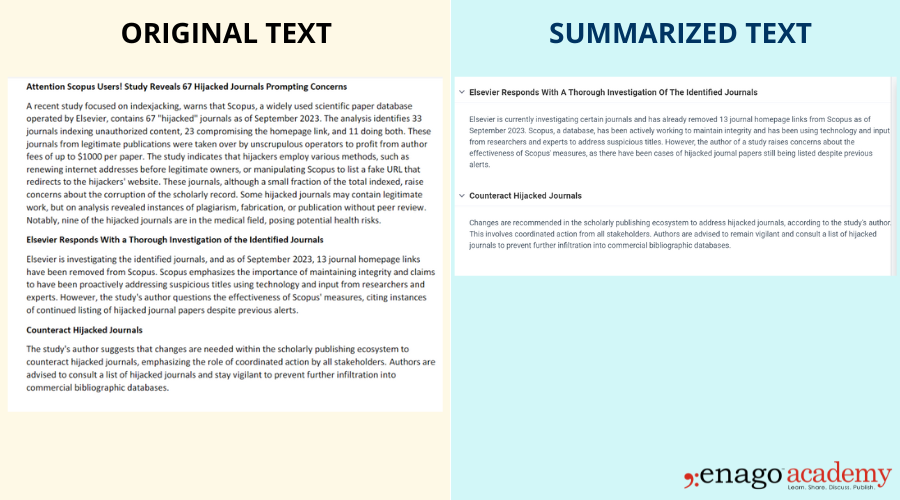 By collecting information from various sources, researchers can gain a holistic understanding of a topic, identify trends, and gather insights that may not be immediately apparent in individual documents.
By collecting information from various sources, researchers can gain a holistic understanding of a topic, identify trends, and gather insights that may not be immediately apparent in individual documents.
Importance of AI Summarization Tools
AI summarization tools are versatile toolkits in managing the vast pool of information. Furthermore, they facilitate quick comprehension of diverse topics, thereby expediting the research process. Some benefits of using summarization tools in research are as follows:
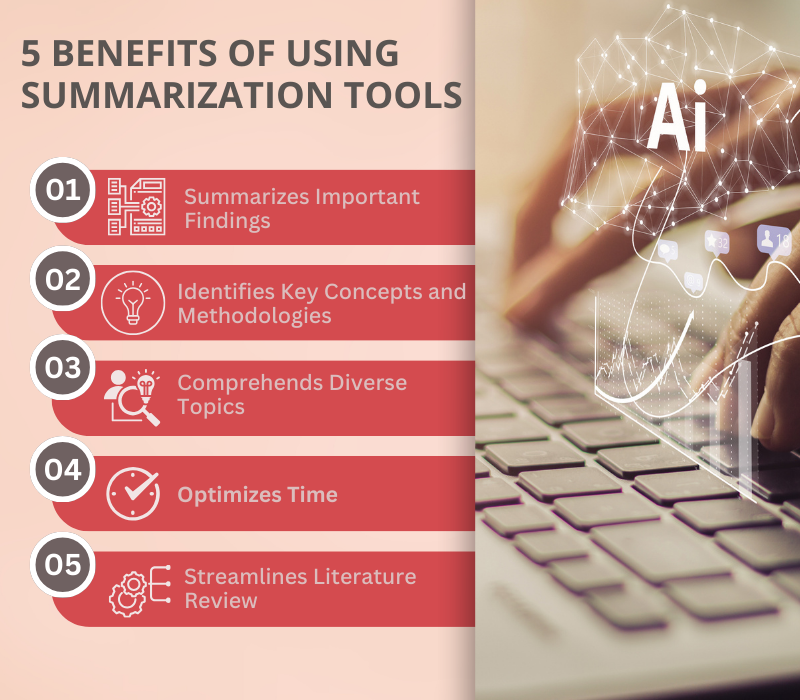
Therefore, using summarization tools not only helps in adding depth to your research but also enables drawing connections to derive meaningful conclusions.
However, with so many tools around, researchers find themselves stuck choosing the right tool that helps them to generate summaries, with minimal loss of useful data.
Comparative Analysis of 6 AI Tools for Summary Generation
With the growing amount of information, the quest for efficient and accurate summary generation tools has increased. The availability of diverse AI-driven solutions has sparked a need for researchers to make an informed choice.
We did a comprehensive evaluation of 6 majorly used AI tools for summary generation by researchers. Based on the parameters such as affordability, user-friendliness, inclusion of diverse data sources (text, PDF, word documents, etc.), additional features, and the quality and accuracy of the summarized content, we analyzed these tools designed for summary generation.
Here is a comparative analysis of these tools to discern their effectiveness in summarizing information and facilitating a nuanced understanding of their respective strengths and limitations.
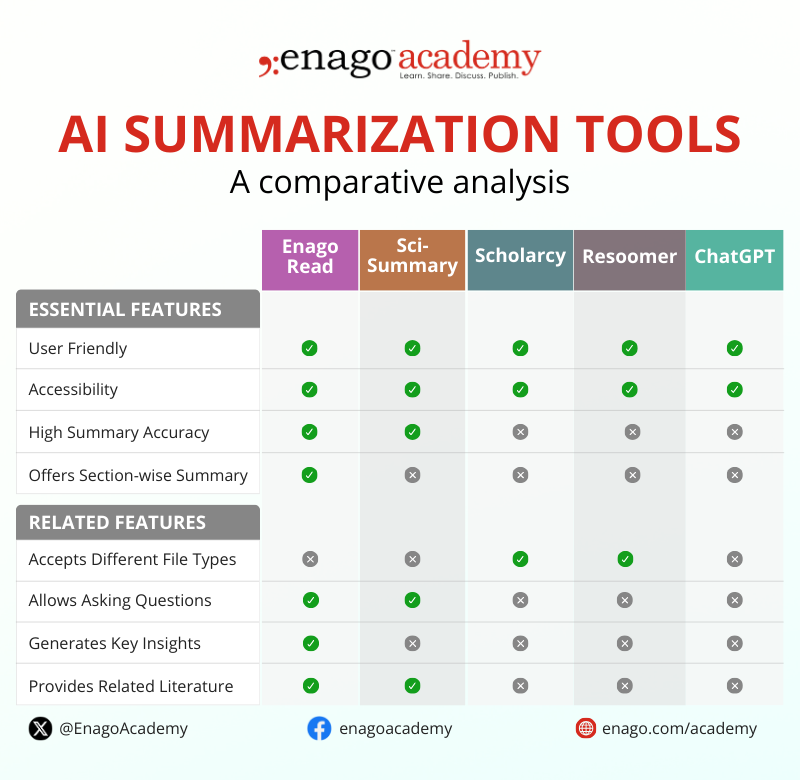 1. Enago Read
1. Enago Read
Enago Read is an AI assistant which is specific for handling technical and specialized scientific content summarization and helps simplifying content from the literature. Furthermore, with the help of Copilot, it helps users to ask questions and simplify the process of literature analysis.
Recommended Users:
Researchers, Students, Marketing Analysts, Industry Stakeholders, Policy-makers
Price:
USD 0 to USD 4
Pros:
- Enables free use
- User-friendly
- Generates accurate and section-wise summary
- Provides supportive arguments and possible research opportunities
- Recommends related literature
- Facilitates asking questions about the literature
- Extracts tables and figures
Cons:
- Long processing time
- Accepts only PDF files/ URL
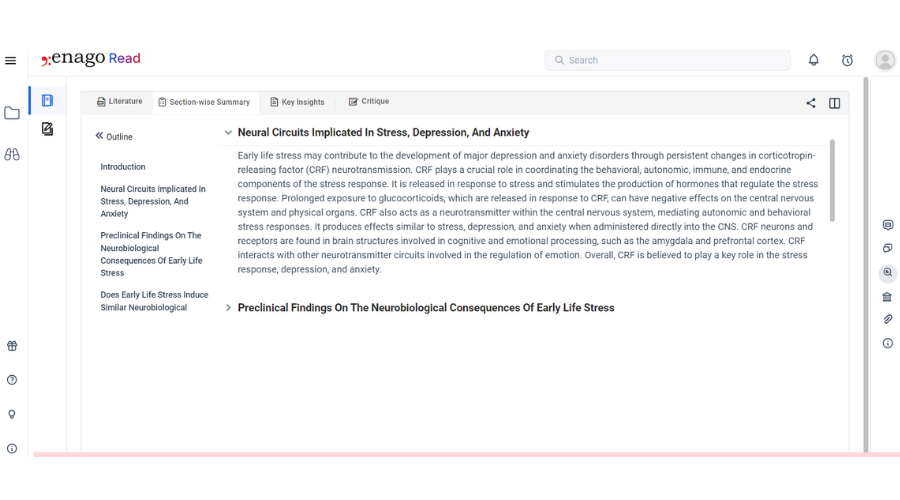 2. SciSummary
2. SciSummary
SciSummary is an AI summarizer that help in summarizing single or multiple research papers. It combines and compares the summaries of the content from research papers, article links, etc.
Recommended Users:
Students, Researchers, Marketing Analysts, Industry Stakeholders, Policy-makers
Price:
USD 4.99 to USD 299.9
Pros:
- Accepts article links
- Provides different types of summarization
- Simplifies the future area of research
- Allows adjusting the summary length
- Provides summary in different languages
Cons:
- The free version does not allow more than 10k words per month
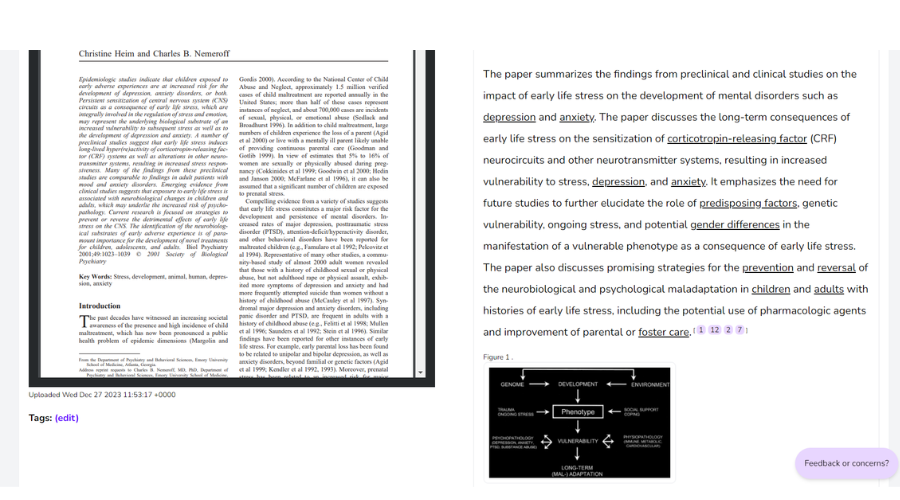 3. Scholarcy
3. Scholarcy
Scholarcy is an online summarization tool that extracts the key highlights, figures, and data from the literature. However, it does not summarize the content from article links and can accept only text files or article DOI.
Recommended Users:
Students, Researchers, Marketing Analysts, Industry Stakeholders, Policy-makers
Price:
USD 0 to USD 410
Pros:
- Provides comparative analysis of the data
- Offers key highlights, abstract and synopsis of the input literature
- Provides a 3-4 lines snapshot of the entire content
- The generated summary can be downloaded
Cons:
- Does not accept article links
- Users with a free account can create only 3 summary flashcards per day
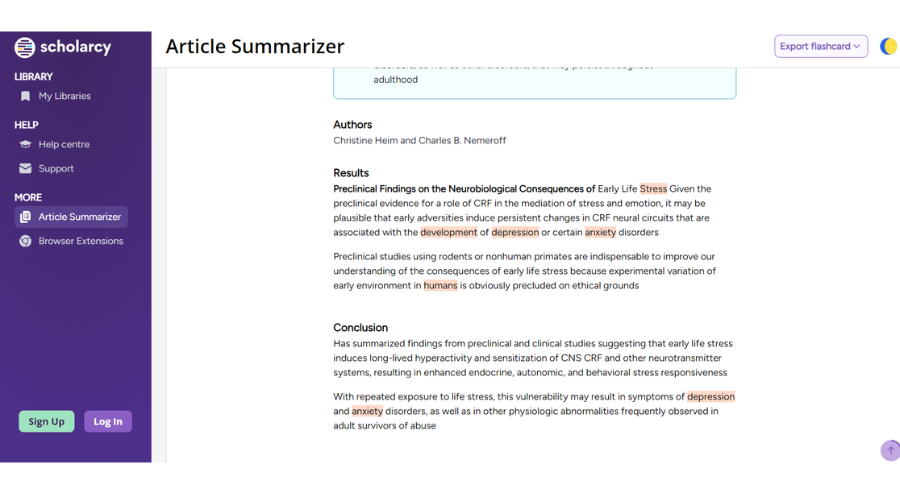 4. Resoomer
4. Resoomer
Resoomer generates summaries and can be used to paraphrase content. It accepts multiple files and provides a summary of the text.
Recommended Users:
Students, Researchers and Marketing Analysts
Price:
Euro 0 to Euro 9.90
Pros:
- Provides different modes to generate summary
- Translates the summary to other languages
- Accepts links, multiple file types and YouTube videos
- Allows downloading the summarized text
Cons
- Provides too long summary with unwanted details
- Does not provide the information from tables or figures
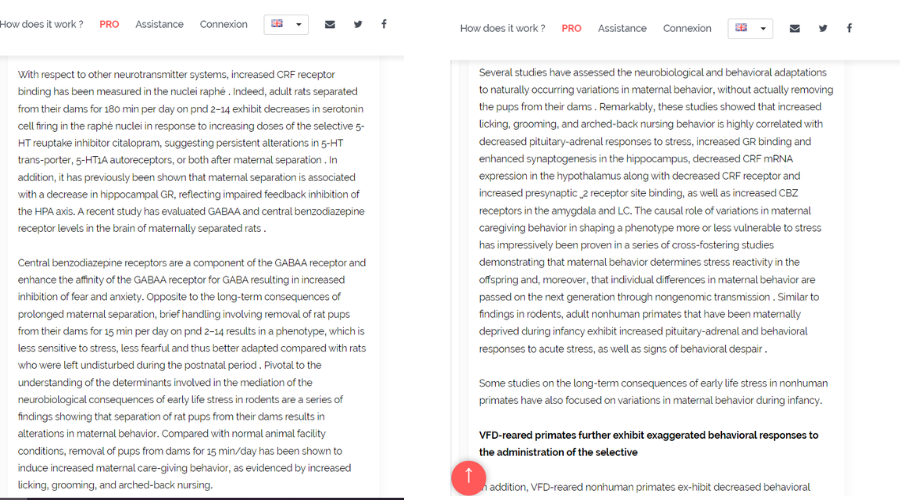
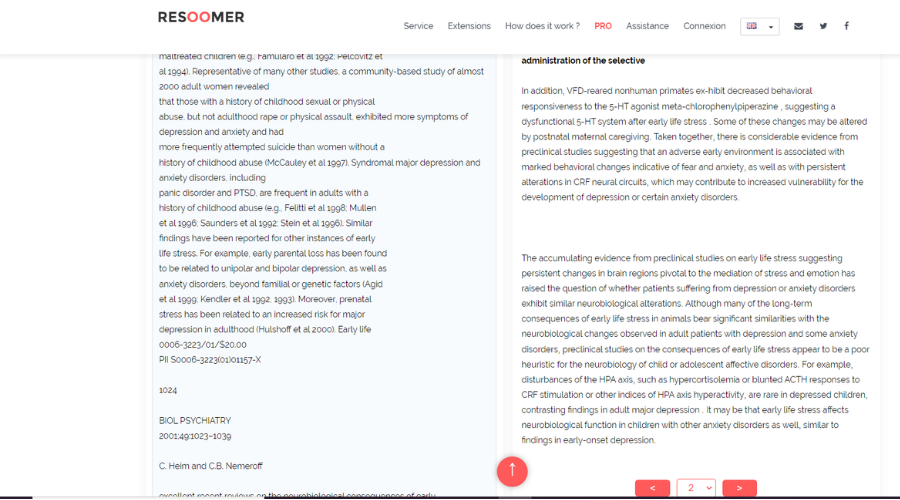 5. ChatGPT
5. ChatGPT
ChatGPT is a free generative AI tool that can perform wide range of activities, including literature summarization. However, it is not reliable as compared to other tools as it requires correct prompts to generate a proper response and the summarized data may include irrelevant details and miss on the important information.
Recommended Users:
Students and Marketing Analysts
Price:
Free
Pros:
- Free
- Easy to use
- Allows regenerating the summary multiple times
Cons:
- Misses relevant points
- Does not accept links and files
- Requires proper prompts for better results
- Cannot summarize long literature
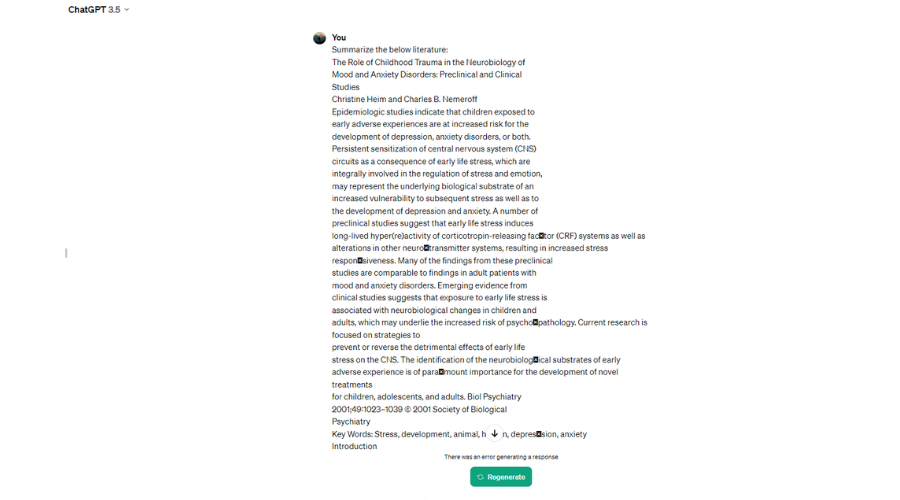
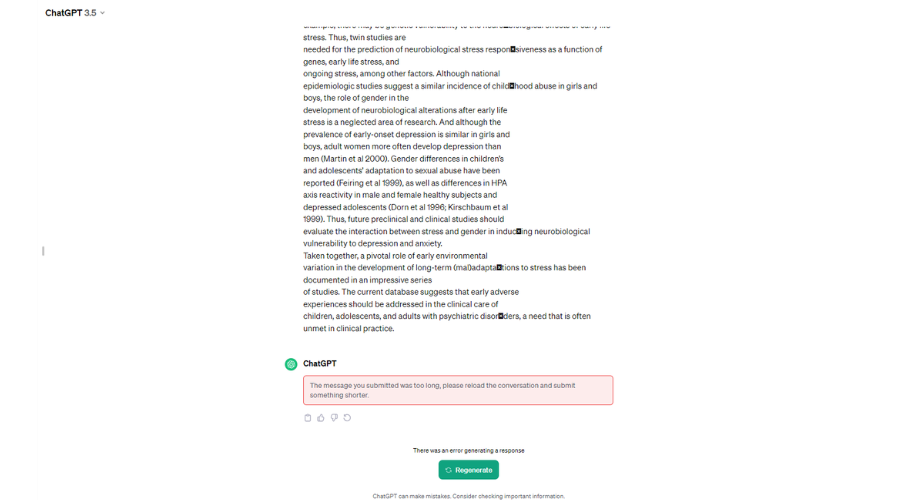 Although every tool has its own merits and demerits, using these tools in tandem can improve your experience. For example, a tool like Enago Read, which is highly trained for handling scientific content, can be used with tools like Scholarcy and Resoomer, which accepts data from diverse sources to improve your experience.
Although every tool has its own merits and demerits, using these tools in tandem can improve your experience. For example, a tool like Enago Read, which is highly trained for handling scientific content, can be used with tools like Scholarcy and Resoomer, which accepts data from diverse sources to improve your experience.
AI-summarization tools can revolutionize the research landscape by offering researchers unparalleled efficiency, speed, and versatility in information processing These tools can accelerate the pace of literature review by helping the researchers to wrap up the tedious task of reviewing lengthy literature. Although these tools offer several advantages that help researchers in streamlining their research process, one must learn to use these tools properly. Moreover, researchers should limit the use of these tools to identifying appropriate references and must read the short-listed references properly to avoid missing out on the important details.
Choosing a right literature review tool not only reduces the burden of tedious literature review but also catalyzes the rapid generation of innovative ideas across diverse domains. Researchers equipped with these powerful tools are better poised to unlock the full potential of abundant data that defines the digital age.
What are you waiting for? Choose your summarization tool wisely and be the ‘Super-researcher’ who effortlessly selects ‘the one’ from dozens of references in mere hours! The time is now — choose wisely and embark on a journey of accelerated knowledge acquisition!
Frequently Asked Questions
There are several AI tools for content summarization. Enago Read is one of the best AI summarizing tool as it is highly trained for handling scientific content and helps in simplifying content from the literature. Furthermore, with the help of Copilot, it helps users to ask questions and simplify the process of literature analysis.
Free AI tools for summarizing research papers include Enago Read, Scholarcy, ChatGPT, etc.
Using AI to summarize articles offers several advantages. Firstly, it saves time and effort by quickly condensing lengthy texts into concise summaries, making it easier for readers to grasp the main points without reading the entire article. Additionally, it helps in handling large volumes of data efficiently. Overall, AI summarization enhances efficiency, accessibility, and accuracy in digesting information from articles.
Summarizing a research paper using AI involves several steps. Firstly, the AI system needs access to the full text of the research paper. Once you add the text to be summarized, the system employs Natural Language Processing (NLP) techniques to analyze the content, identify key sentences, phrases, and concepts. Finally, the generated summary is reviewed to ensure it accurately represents the essence of the research, providing readers with a quick overview of the paper's content without needing to read the entire document.





